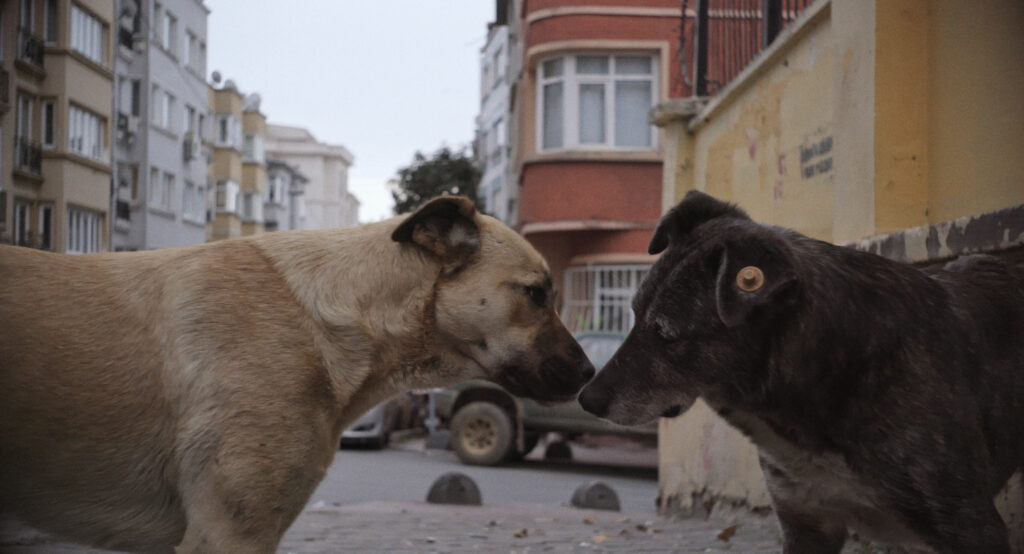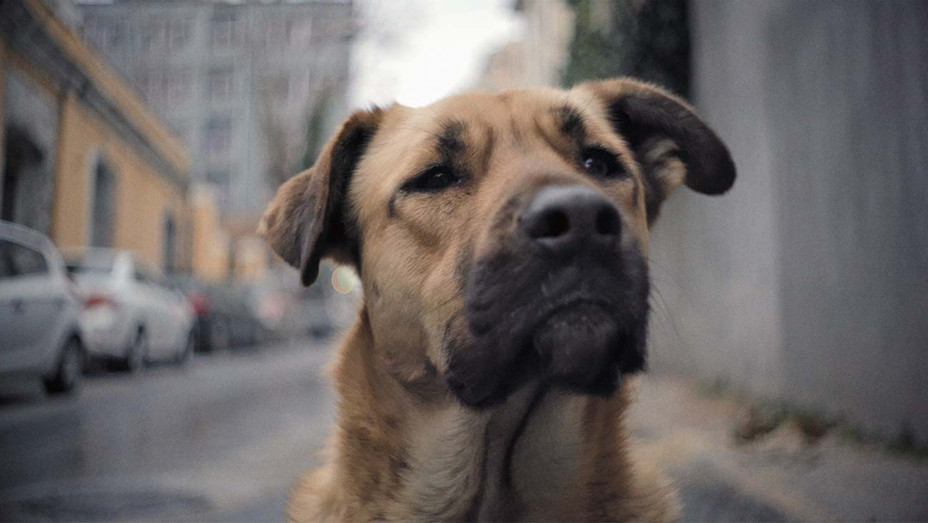Stray is a quiet and bittersweet documentary that follows Zeytin, a stray dog on the streets of Istanbul. Through the eyes of the golden haired mutt, director Elizabeth Lo manages to capture the precarious lives of these overlooked animals on the edges of society.
Since 1909, Turkish authorities have tried to annihilate their large population of stray dogs, particularly in big cities. Due to widespread protest however, these animals who were once exterminated en masse are now protected by law, making Turkey one of the few countries in the world where it is now illegal to kill or even capture any stray dog. Zeytin’s life is like most of the other stray dogs’ in Istanbul. She is curious yet careful, looks out for cars on the road and knows where to find food and shelter. Some citizens are kind to her, they feed her, stroke her, dance with her; overwhelmingly though, they ignore her. She, like all the other stray dogs, is nothing but scenery to the city’s inhabitants.

Mirroring the randomness of a dog’s life, Stray is a film without structure. Featuring very little dialogue, the film is segmented by quotes from Greek philosopher Diogenes, which serve as quasi-chapter titles. We see cards like “dogs and philosophers do the greatest good and get the fewest rewards,” which Diogenes is quoted as saying in 386 BC. It is unclear what these quotes add to the film. Besides the surprise that these apt words were said over 2000 years ago, the lack of explanation or follow-through for these statements mean they add very little to the documentary.
Filmed between 2017 and 2019, we do hear snippets of conversation that paint a political backdrop to the dogs’ lives in Turkey. At one point, through the TV broadcast, we hear news of President Erdogan’s plans to expand his powers. Later on, the dogs wander through a feminist protest. Stray nonetheless remains mostly apolitical, opting instead to be an observational piece.

Over the two years spent filming, Zeytin befriends a group of Syrian refugees. Like her, these teens from Aleppo are lost in the system and confined to the fringes. They find comfort with the unwanted dog, even as they know they are afforded less protection than street animals. In moments without the Syrian teens’ presence, Stray quickly becomes aimless. Of course, that is to be expected when witnessing the random wanderings of a dog, but Zeytin’s nomadic life become glaringly repetitive all too quickly.
From a dog’s point of view, the colourful tapestry of Istanbul is rendered melancholic. Stray doesn’t make any new discoveries about canine behaviour or the human condition, and instead reaffirms what we already know. Cities are scary places for those with no home. It is tempting and easy to anthropomorphise Zeytin and in fact, at many points, it seems like the film is willing you to do so. Yet just as often, Stray reminds its audience that all you are doing is watching a dog run around a city… and there’s only so much of that you can watch before it becomes tedious.
Stray is out in virtual cinemas and on demand now.
